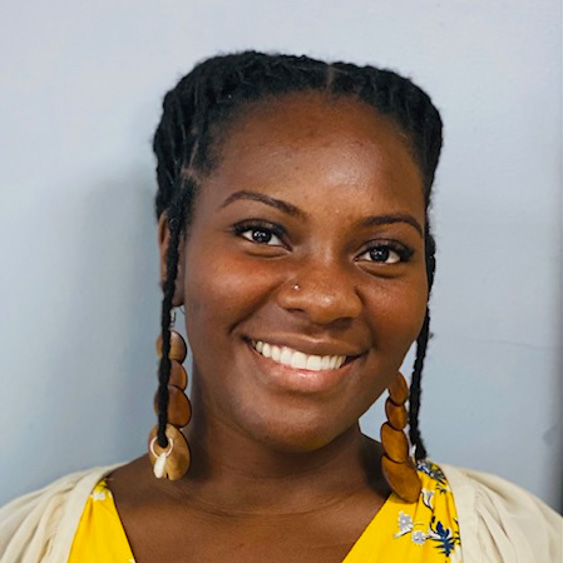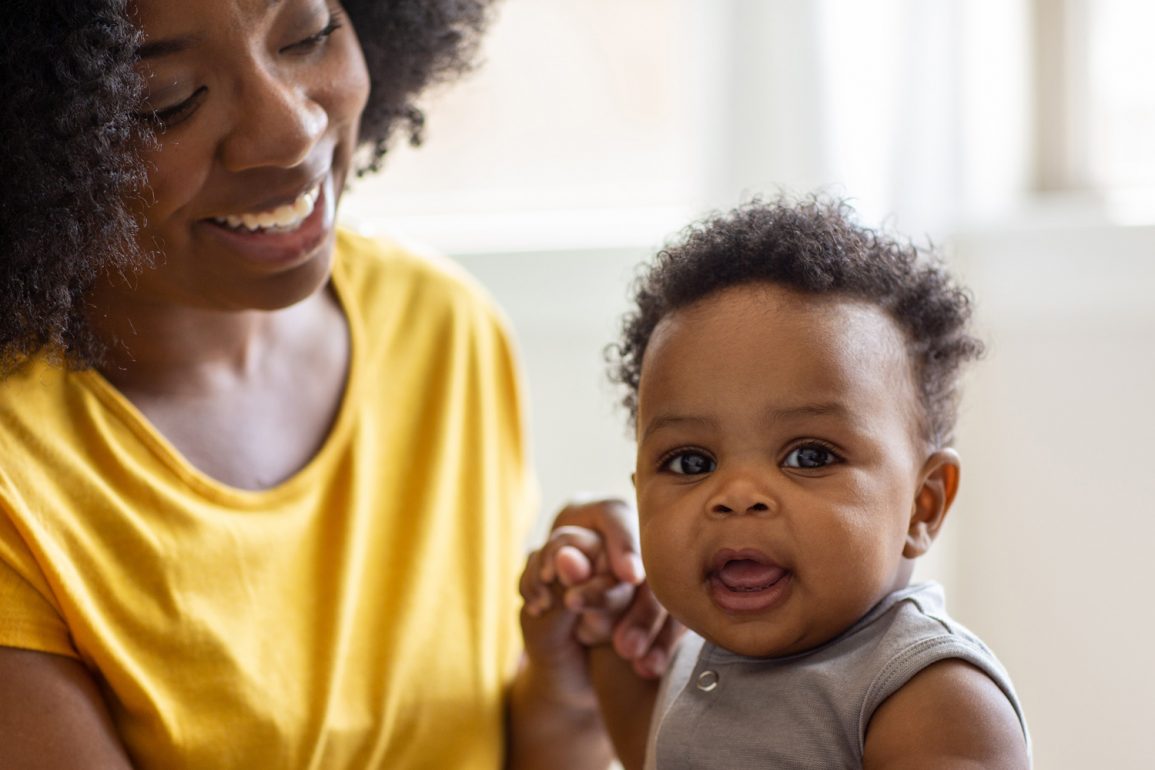While home-based child care is often the preferred child care arrangement for Black and brown families, immigrant families, rural families, and those with infants and toddlers, a focus on home-based child care has been largely absent from conversations and decision making about program design, research, investment and governance in the early learning sector.
We know the pandemic has illustrated both how critical this aspect of the child care sector is to working parents and their children, and how inequitably resources have been allocated to them. National data shows that over 6 million children ages 0 to 5 use home-based care, which includes both licensed family child care and license-exempt family, friend and neighbor care.
This 6-part series of interviews and profiles, created in partnership with Home Grown, seeks to elevate and celebrate the leaders of color who are envisioning and building a more inclusive child care sector with a focus on home-based child care. Follow along with the series to learn about researchers, providers, advocates and administrators who have worked tirelessly to create a coherent, inclusive and well-resourced system for diverse children and families.
Welcome to the first in a six-part series that highlights the contributions of and challenges for underrepresented family child care providers.
Home-based child care is often the preferred child care arrangement for Black and brown families, immigrant families, rural families, and those with infants and toddlers but is rarely positioned within the national discourse as a high-quality child care option. National data shows that over 6 million children ages 0 to 5 use home-based care, which includes both licensed family child care and license-exempt family, friend and neighbor care.

With the ongoing child care crisis exacerbated by Covid-19, it’s important to amplify the work of Dr. Crystasany R. Turner, whose dissertation explores Black Women Child Care Providers’ Role as Community Mothers During the Covid 19 Pandemic. Through storytelling and research, she demonstrates that home-based child care providers are more than high-quality child care providers, but are community leaders who voluntarily assume the role of mothers, mentors, bosses, business owners and advocates in their communities.
Dr. Turner is an assistant professor at the Erikson Institute, an independent institution of higher education committed to ensuring that all children have equitable opportunities to realize their potential. Dr. Turner became a researcher focused on child care and early learning after 15 years of teaching in both a child care setting and at the middle school level.
1. Why did you decide to become a researcher and to focus your research (dissertation) on Black family child care providers?
My mother and grandmother were both family child care providers in Milwaukee who later opened centers when the demand exceeded the number of kids they could serve in their homes. For my mother, running a family child care was a way of being able to stay home with her four children while having a source of income; this is a common origin story for the women in my study as well. Similarly, my grandmother opened her family child care to take care of her grandchildren and other neighborhood kids. She did family child care for about 10 years and outgrew her home; so she opened a center that’s still open today serving over 200 hundred children. It’s beautiful to see how her ability to develop relationships within the community and be a part of that community has led to a business that’s been operating for 32 years now. My grandmother has passed away but her legacy lives on in this child care center.
After going to college to study Spanish and visual arts, I started working in my grandmother’s center, which my mom now runs. I also worked as a Spanish teacher in some Milwaukee elementary and middle schools. While teaching 7th and 8th graders, I learned that many children weren’t reading or writing at grade level; and I started trying to figure out how and why our children had gone this far in their schooling without these basic skills. I was just their Spanish teacher, but this experience made me realize if I am really going to be an advocate for my students, I need to go back to school. I then got my masters in urban education, and while I continued to teach, I decided to pursue my doctoral studies. I wanted my research to explore the ways Black educators respond to and meet the needs of Black students in culturally responsive ways starting from early childhood. This led me to thinking about how I remembered my grandmother’s work in her family child care.
2. You describe Black family child care providers as “community mothers.” What does this mean?
I see a community mother as someone who is a part of the community and who contributes her resources and her spirit force to uplifting and advancing that community. In the study, I discuss how the women had a sense of ownership for what happened in their community. Their attitude was that ‘this is my corner of the community that I am going to uphold and be responsible for.’ Nobody gave them this responsibility; it’s something that is rooted within women in the Black community. It goes all the way back to children being torn apart from their mothers and being shipped away and enslaved. If you look at orphaned children during that period of slavery, you’d see women and older girls taking up that responsibility and making sure all children were nurtured and taken care of. It’s part of our cultural heritage.
The women in my study didn’t just talk about how they took care of children, but also how they provide families with mentorship, guidance and other resources. For example, one of my participants was forced to close for two weeks when Covid-19 hit. In that time period, she engaged her networks with her church and different food pantries in her community so she could get food to the children and families in her program and community. She became a distribution house for food, diapers and formula for families struggling to find or afford groceries in the early days of the pandemic. She would wake up early to prepare 30 plus meals a day so the children and families would still be able to eat. Nobody asked her to do that, but this is something that came from her sense of responsibility, passion and being a community mother.
3. Tell us about what you find about Black family child care providers as bosses.
The women in my study were not just care providers and community mothers; they were business owners, advocates, leaders in their churches and other community organizations. They were the go-to person for so many different areas of influence within their community.
That mindset led to some conflict when different regulatory agencies came into their homes telling them how to navigate and operate their business. These women are thinking, ‘I know these children are well taken care of and well fed because I make their meals myself. I know they are being academically and communally prepared because I spend hours every day pouring into them. And now someone from the outside comes to tell me how to run my business and care for my children?’
I noticed pushback throughout their narratives–finding ways to care for their children and families even when not feeling supported by regulatory agencies. They are not going to be bullied by these organizations. They empowered themselves. They know rules and regulations and know their business is in compliance, and therefore are unwilling to be pushed around in their own home. Knowing their value and handling their own – that’s the boss mentality!
4. Given what you know and have learned about Black family child care providers, what recommendation or thoughts do you have for system leaders and policymakers?
Regulatory systems and quality rating and improvement systems (QRIS) have done a good job marketing their white standards and eurocentric values in defining what “quality” care looks like; and that’s something I’m adamant about pushing back on.
These providers, who hold so much knowledge and commitment to families are not valued by the system. I discuss a woman in my study who had been caring for children for 30 years when the QRIS started in her state. Because of her level of formal education, she was classified as a “2 star out of 5 stars” – not very high quality. This, despite that she’s had generations of children going through her programs into the school system, showing they’re socially-emotionally and academically prepared and deeply rooted in their community. I’m all for education, but saying to a woman who has cared for children for over 30 years that “you don’t know child development or how to engage your community” unless you’ve taken a university course is highly problematic.
Dawn Holden-Woods, Series Author,is a consultant and writer with Home Grown. She specializes in providing technical assistance and capacity building support to Black and brown-led organizations and advises philanthropy on ways to advance equity in partnership with their grantees. Prior to this, Holden-Woods spent over 15 years as both the chief financial officer and chief executive officer of a large social service organization. She holds a masters of public administration from the University of Pennsylvania and a bachelors in accounting from Lincoln University of Pennsylvania.
Home Grown is a national initiative committed to improving the quality of and access to home-based child care. Home Grown envisions a country in which all children have the care they need to reach their full potential (cognitive, social, emotional, health and wellness). Providers offer quality child care and parents have equitable access to quality child care for their children.




